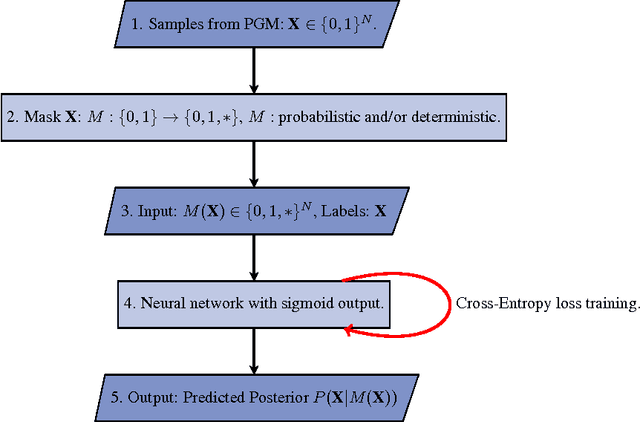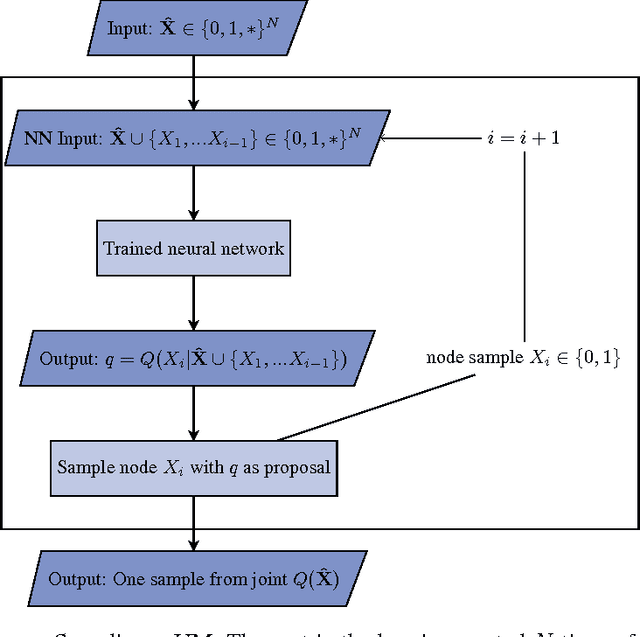A Universal Marginalizer for Amortized Inference in Generative Models
Paper and Code
Nov 02, 2017



We consider the problem of inference in a causal generative model where the set of available observations differs between data instances. We show how combining samples drawn from the graphical model with an appropriate masking function makes it possible to train a single neural network to approximate all the corresponding conditional marginal distributions and thus amortize the cost of inference. We further demonstrate that the efficiency of importance sampling may be improved by basing proposals on the output of the neural network. We also outline how the same network can be used to generate samples from an approximate joint posterior via a chain decomposition of the graph.
* Submitted to the NIPS 2017 Workshop on Advances in Approximate
Bayesian Inference
 Add to Chrome
Add to Chrome Add to Firefox
Add to Firefox Add to Edge
Add to Edge